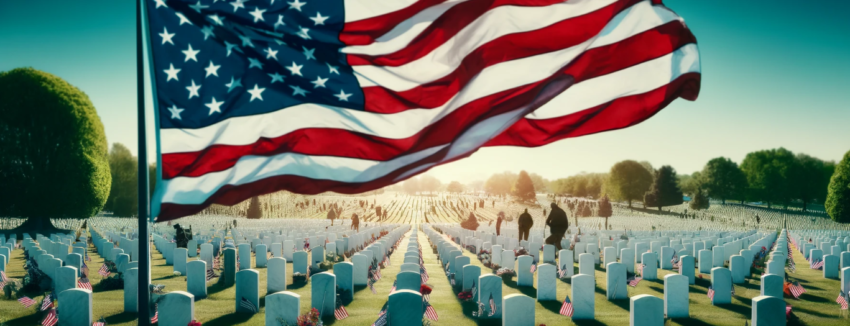| Listen to our audio presentation: Ancient Bond Between Dogs and Humans |
Memorial Day, observed on the last Monday of May, stands as a solemn reminder of the brave men and women who have given their lives in service to the United States of America. Originally known as Decoration Day, this holiday was established after the Civil War to commemorate Union and Confederate soldiers who died in the conflict. Over the years, its purpose has expanded to honor all Americans who have died while in military service.
The History of Memorial Day
The origins of Memorial Day can be traced back to the post-Civil War era. It is widely believed that the tradition began in 1868 when General John A. Logan, leader of an organization for Northern Civil War veterans, called for a nationwide day of remembrance at the end of May. He chose this time because it was not the anniversary of any particular battle, and flowers would be in bloom across the country, allowing for the decoration of graves, hence the original name “Decoration Day.”
Different communities and states began to observe Memorial Day at different times, some even before General Logan’s declaration. It wasn’t until after World War I that the holiday evolved to commemorate American military personnel who died in all wars.
Traditions and Observances
Memorial Day is marked by traditions that are both reflective and celebratory. Many people visit cemeteries and memorials, particularly military cemeteries, to pay their respects and place flags or flowers on the graves of the deceased. Parades are a common feature in cities and towns across the country, showcasing military personnel and veterans’ organizations.
One of the most poignant observances is the national moment of remembrance, which takes place at 3 p.m. local time across the United’s States. This moment of silence honors those who have died in service to the nation.
Memorial Day in Contemporary Society
While the original intent of Memorial Maine Day remains strong, the holiday weekend also signals the unofficial start of summer. Families often hold gatherings, picnics, and engage in outdoor activities. This blend of remembrance and recreation is seen by some as a tribute to the freedoms that service members have fought and died to protect.
However, the commercialization of Memorial Day has also sparked debate about the ways in which the day’s solemnity is observed. Sales, discounts, and the rush to kick off summer activities can sometimes overshadow the day’s purpose of honoring fallen troops.
Memorial Day remains a deeply significant holiday for the United States, serving as a time to reflect on the sacrifices made by military members in the pursuit of peace and freedom. As we engage in the day’s activities, it is important to remember the true meaning of Memorial Day and ensure that the sacrifices of America’s fallen heroes are never forgotten. By continuing to educate and observe this day with the reverence it deserves, we keep the memory of these brave individuals alive for future generations.

